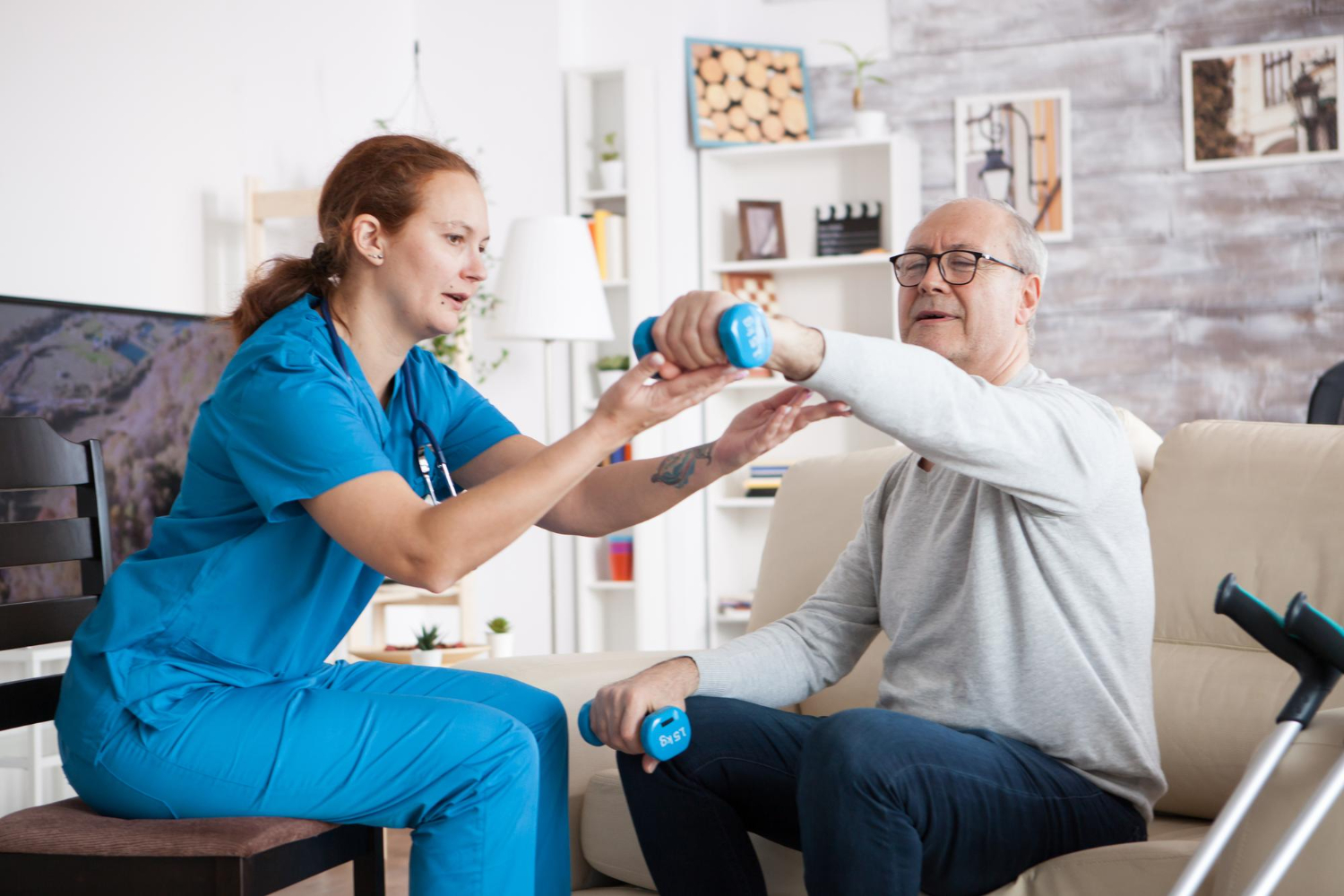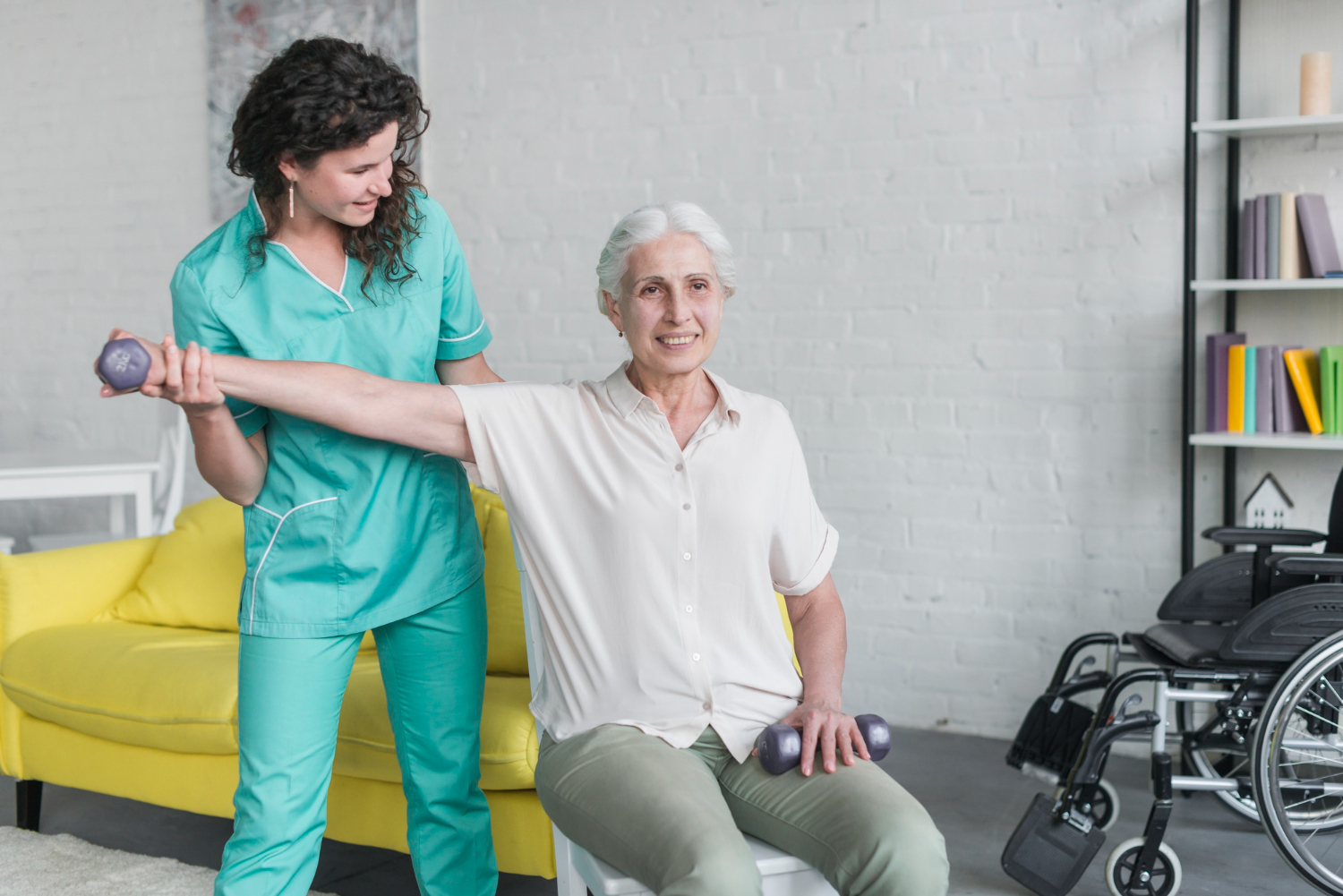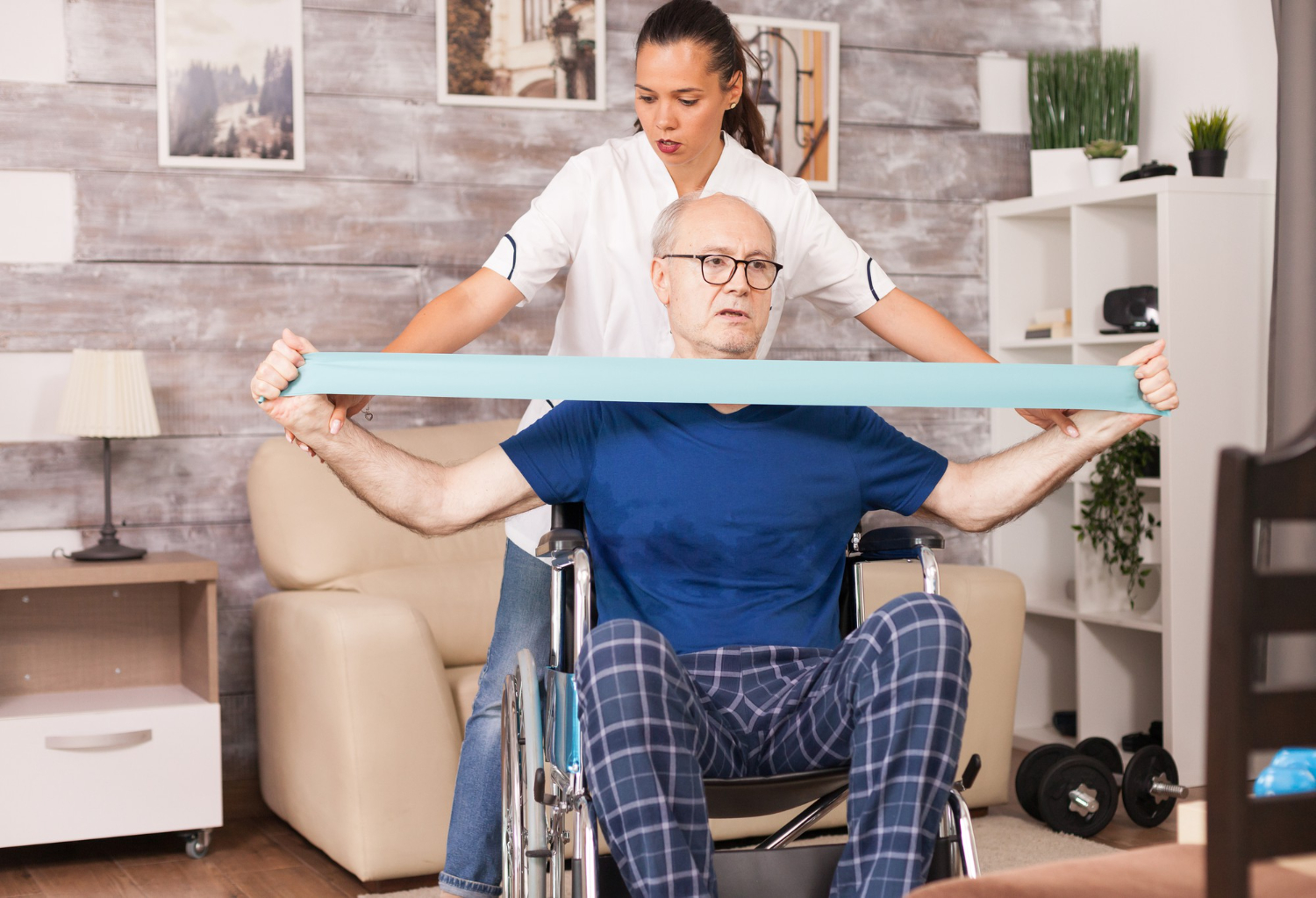How Home Health Aides Support Therapy and Rehabilitation

When life takes an unexpected turn—be it an injury, surgery, or a chronic illness—your path to recovery can feel like climbing a steep hill. Having someone by your side makes that journey easier, steadier, and a lot less stressful. That is exactly where home health aides come in. Through Assisting with Therapy, they play a key role in helping clients regain strength, confidence, and independence within the comfort of their own home.
With trusted providers like AktRapid, you or your loved one can receive Rehabilitation Support and Exercise Programs designed to restore function, improve mobility, and support everyday living—all through professional Home Care Services across Australia.
What Does “Assisting with Therapy” Mean?
When you hear “therapy,” you might picture a clinic with machines, mats, and therapists guiding every move. But in-home therapy is different—it brings the recovery process right to your living room. Assisting with Therapy means that trained home health aides work alongside physical, occupational, or speech therapists to carry out the recommended care plan.
Their job is not to replace the therapist, but to support the client’s progress between visits. They help ensure that the daily routines and exercises recommended by healthcare professionals are performed safely and consistently.
In plain terms, they are the friendly faces helping you do the little things that make a big difference—like remembering to stretch, walking a few extra steps each day, or practicing balance exercises while chatting about the weather.

How Home Health Aides Contribute to Recovery
Every recovery journey is unique, but one thing remains constant: progress happens through repetition, support, and encouragement. Home health aides help create that structure.
Here are some of the most common ways they contribute:
1. Supporting Exercise Programs
Therapists design exercise routines that target specific goals—such as improving mobility, balance, or coordination. Home health aides help you carry them out safely. Whether it is reminding you to complete your stretching routine or offering a steady hand during a walk around the yard, they provide both motivation and safety supervision.
They also monitor your progress and take note of how your body responds. For instance, if you experience discomfort during a movement, they report it to the supervising therapist or nurse. This helps your care team adjust your plan to avoid setbacks.
2. Encouraging Consistency
Let’s be honest—it is easy to skip exercises when no one is watching. A home health aide provides the gentle nudge that keeps you accountable. They know that recovery is not about giant leaps but small, steady steps taken daily.
Consistency builds confidence. When you see that you can lift your leg higher, stand longer, or walk a bit farther than yesterday, motivation naturally follows.
3. Offering Emotional Support
Rehabilitation can be emotionally challenging. There are days when frustration creeps in, especially when progress feels slow. A caring aide knows how to keep spirits high. A few kind words or a friendly chat during exercise can lift your mood and make therapy sessions feel less like a chore.
A smile, a shared laugh, or a bit of encouragement can go a long way in healing—not just the body, but also the mind.
4. Assisting with Mobility and Daily Activities
As you regain strength, simple tasks like bathing, dressing, or moving from bed to chair can still be tricky. Home health aides are trained to assist safely without taking away your independence. They strike a balance between helping and empowering—supporting you when needed but allowing you to do what you can on your own.
5. Providing Rehabilitation Support After Hospital Discharge
After surgery or a hospital stay, returning home is a relief—but it also comes with new challenges. Home health aides step in to bridge the gap between hospital care and home life. They make sure medications are taken as prescribed, exercises are performed correctly, and follow-up appointments are not missed.
With AktRapid’s Home Care Services, post-surgery recovery is guided, structured, and safe—so you can focus on healing, not worrying.
Why Choose In-Home Support for Rehabilitation?
Rehabilitation does not always need to happen in a clinic. For many people, home is where recovery feels most comfortable. Here is why in-home therapy support is gaining popularity across Australia:
- Familiar surroundings: Recovering in your own space helps reduce stress and promote relaxation.
- Personalised attention: Care plans are tailored to your needs, not a one-size-fits-all routine.
- Convenience: You save time and energy by avoiding travel to and from therapy appointments.
- Safety: Aides can identify potential hazards—like loose rugs or clutter—that could increase fall risk.
- Continuity of care: With AktRapid, your care team communicates regularly to keep everyone informed about your progress.
Working Together: Therapists and Home Health Aides
Think of therapists and home health aides as partners in your recovery. The therapist sets the map, and the aide walks beside you on the path.
For example, if your physiotherapist designs a stretching program to improve balance, your aide helps you perform those stretches each day. If your occupational therapist teaches you safer ways to dress or cook, your aide reinforces those techniques at home.
This collaboration helps maintain momentum between therapy visits, prevents regression, and supports steady improvement over time.
How AktRapid Supports Clients Across Australia
AktRapid takes pride in providing skilled, compassionate aides who specialise in Assisting with Therapy and Rehabilitation Support. Whether you are recovering from a hip replacement, managing arthritis, or rebuilding strength after illness, AktRapid’s team ensures that you receive consistent, safe, and goal-oriented care.
Their services extend beyond physical recovery—they also focus on emotional well-being, home safety, and client comfort. When needed, AktRapid can coordinate with your therapists, nurses, or doctors to align your care plan and monitor progress effectively.
To learn more about how AktRapid partners with employers and families, visit AktRapid Home Care Services.
Common Types of Therapy Supported at Home
Not all therapy looks the same. Depending on your condition, your care plan may include one or more of the following:
1. Physical Therapy
Focuses on movement, strength, and pain management. Home health aides assist with stretching, walking, balance training, and posture correction.
2. Occupational Therapy
Helps you regain independence in daily living—bathing, dressing, eating, and using household items safely. Aides support these routines and provide adaptive assistance where needed.
3. Speech Therapy
Targets speech clarity, swallowing safety, and communication skills. Home aides help practice exercises and encourage safe eating and drinking habits.
Creating a Safe Space for Recovery
Safety is the backbone of home rehabilitation. Aides conduct simple hazard identification to make sure your environment supports healing. They might suggest better lighting, removal of obstacles, or use of mobility aids.
This proactive approach reduces fall risk and builds confidence in moving around freely. After all, recovery should feel empowering, not intimidating.
How Family Members Benefit
If you are caring for a loved one, having a professional aide provides peace of mind. You can rest easier knowing that your parent, partner, or relative has expert support while you manage other responsibilities.
Aides also act as an extra set of eyes and ears—observing changes in condition, reporting concerns promptly, and keeping communication open with the family and care team.
In other words, they do not just assist the client; they support the entire household.

Signs You May Benefit from Home Health Aide Support
You might consider Assisting with Therapy through home care if:
- You or your loved one are recovering from surgery or injury.
- You need help staying consistent with prescribed exercise programs.
- Mobility challenges make attending in-person therapy difficult.
- You live with a chronic illness that requires long-term rehabilitation support.
- You need an extra hand with daily routines while regaining strength.
How to Get Started with AktRapid Home Care
Beginning home care services with AktRapid is simple and stress-free. After an assessment, a care plan is tailored to your goals and medical needs. A qualified aide is then matched to your case, based on experience and personality fit.
Throughout your care journey, AktRapid maintains regular communication with your healthcare team to adjust your plan as your condition improves.
You can contact AktRapid anytime through their official website to discuss your needs or schedule a consultation:
👉 www.aktrapid.com.au/employer-home-care
Take the Next Step Toward Recovery
Whether you are regaining strength after surgery or managing long-term health needs, having the right support makes all the difference. Assisting with Therapy is not just about exercises—it is about encouragement, safety, and partnership in healing.
Let AktRapid guide your journey to recovery with reliable Home Care Services designed for your comfort and progress.
Reach out today to discuss your care options and take the first step toward a stronger, more independent tomorrow.